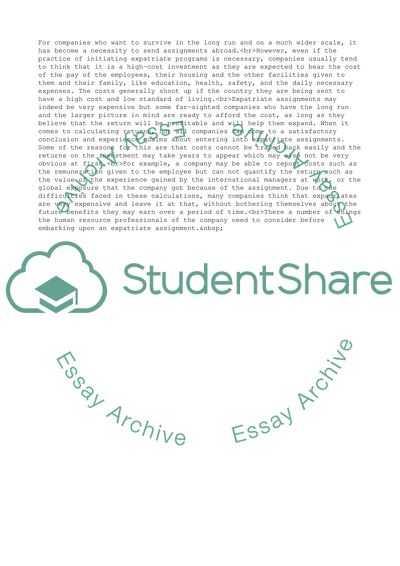Cite this document
(International Management: For an Organization Expatriates Represent a Term Paper, n.d.)
International Management: For an Organization Expatriates Represent a Term Paper. Retrieved from https://studentshare.org/management/1527402-international-management-master-essay
International Management: For an Organization Expatriates Represent a Term Paper. Retrieved from https://studentshare.org/management/1527402-international-management-master-essay
(International Management: For an Organization Expatriates Represent a Term Paper)
International Management: For an Organization Expatriates Represent a Term Paper. https://studentshare.org/management/1527402-international-management-master-essay.
International Management: For an Organization Expatriates Represent a Term Paper. https://studentshare.org/management/1527402-international-management-master-essay.
“International Management: For an Organization Expatriates Represent a Term Paper”, n.d. https://studentshare.org/management/1527402-international-management-master-essay.


